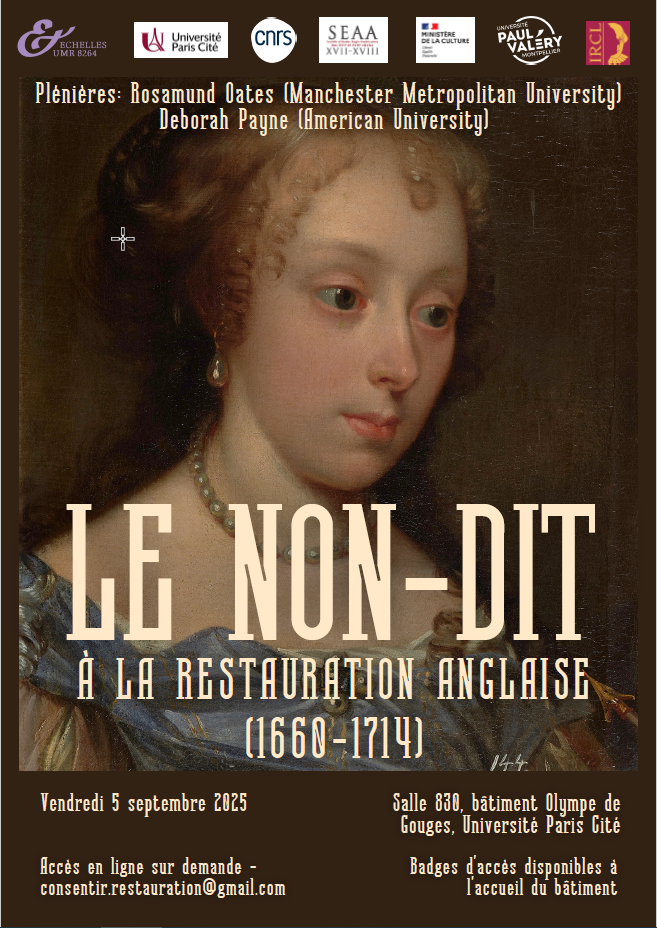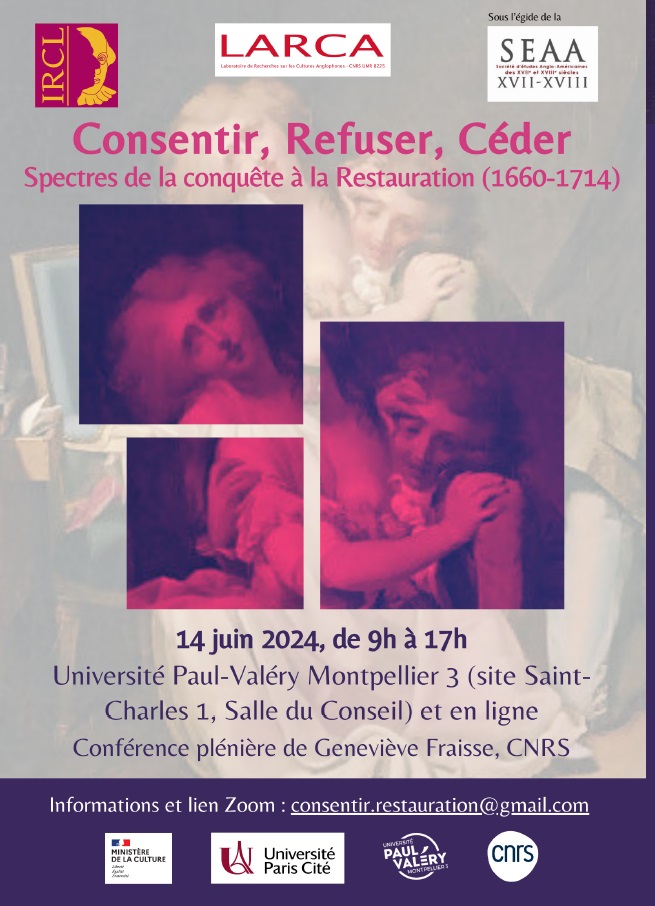Le colloque est aussi accessible en ligne, le lien est disponible sur demande à l’adresse consentir.restauration[at]gmail.com.
Le programme du colloque est également disponible ici en version pdf.
Continuer la lecture de « JE: Le non-dit à la Restauration Anglaise (1660-1714). 5 septembre 2025, Université Paris Cité. Programme »




